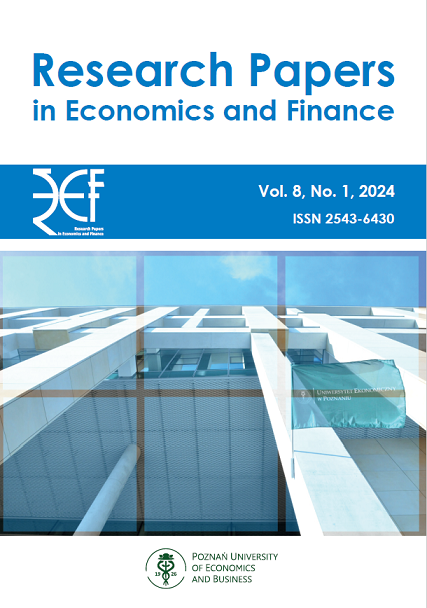Digitalisation and income inequality in Central and Eastern European countries
Digitalisation and income inequality in Central and Eastern European countries
Author(s): Sławomir Kuźmar, Dawid PiątekSubject(s): Economy, National Economy, ICT Information and Communications Technologies
Published by: Wydawnictwo Uniwersytetu Ekonomicznego w Poznaniu
Summary/Abstract: The COVID-19 pandemic has highlighted the importance of digital technologies in business and daily life. The paper aims to explore the theoretical and empirical aspects of the relation between digitalisation and income inequality in Central and Eastern European (CEE) countries between the years 2000-2020. It contributes to existing research on determinants of income inequality, focussing on the potential negative role of digitalisation as an unnoticeable driver of income inequality in CEE countries. To investigate the potential impact of digitalisation on income inequality, empirical analysis was performed for the sample of 10 CEE countries, namely Bulgaria, the Czech Republic, Estonia, Hungary, Latvia, Lithuania, Poland, Romania, the Slovak Republic and Slovenia. The results of canonical correlation analysis indicated that the sets of variables related to digitalisation and inequality as a group are significantly related to each other and a strong correlation exists between them. The relative contribution of each indicator to each standardised function showed that the highest values of significant standardised coefficients were observed for income inequality indicators such as the top 10% share, the Gini coefficient, and the top 1% share, while in digitalisation measures, the highest value was observed for Internet users and fixed and mobile broadband subscriptions.
Journal: Research Papers in Economics and Finance
- Issue Year: 8/2024
- Issue No: 1
- Page Range: 158-176
- Page Count: 19
- Language: English

